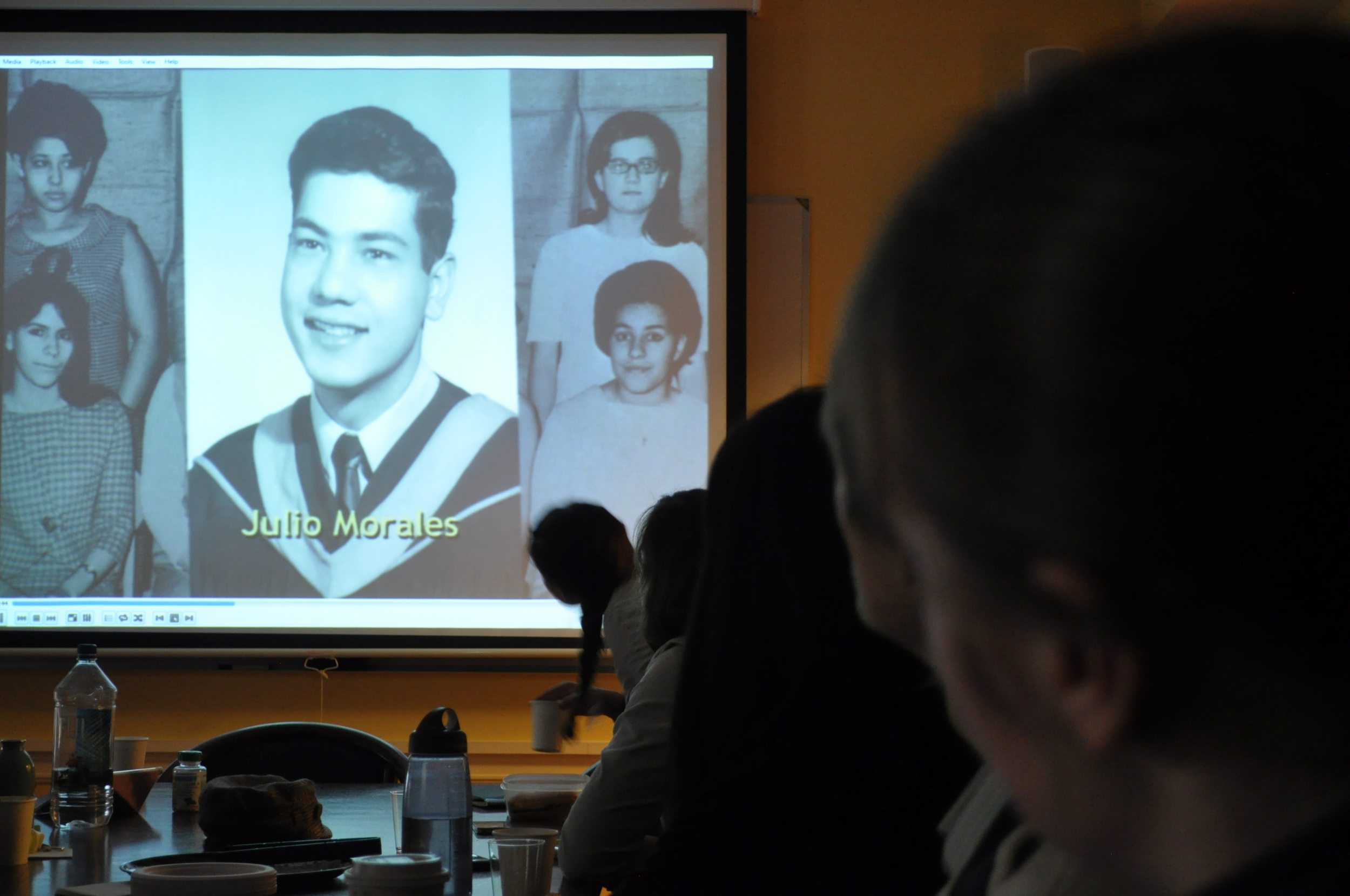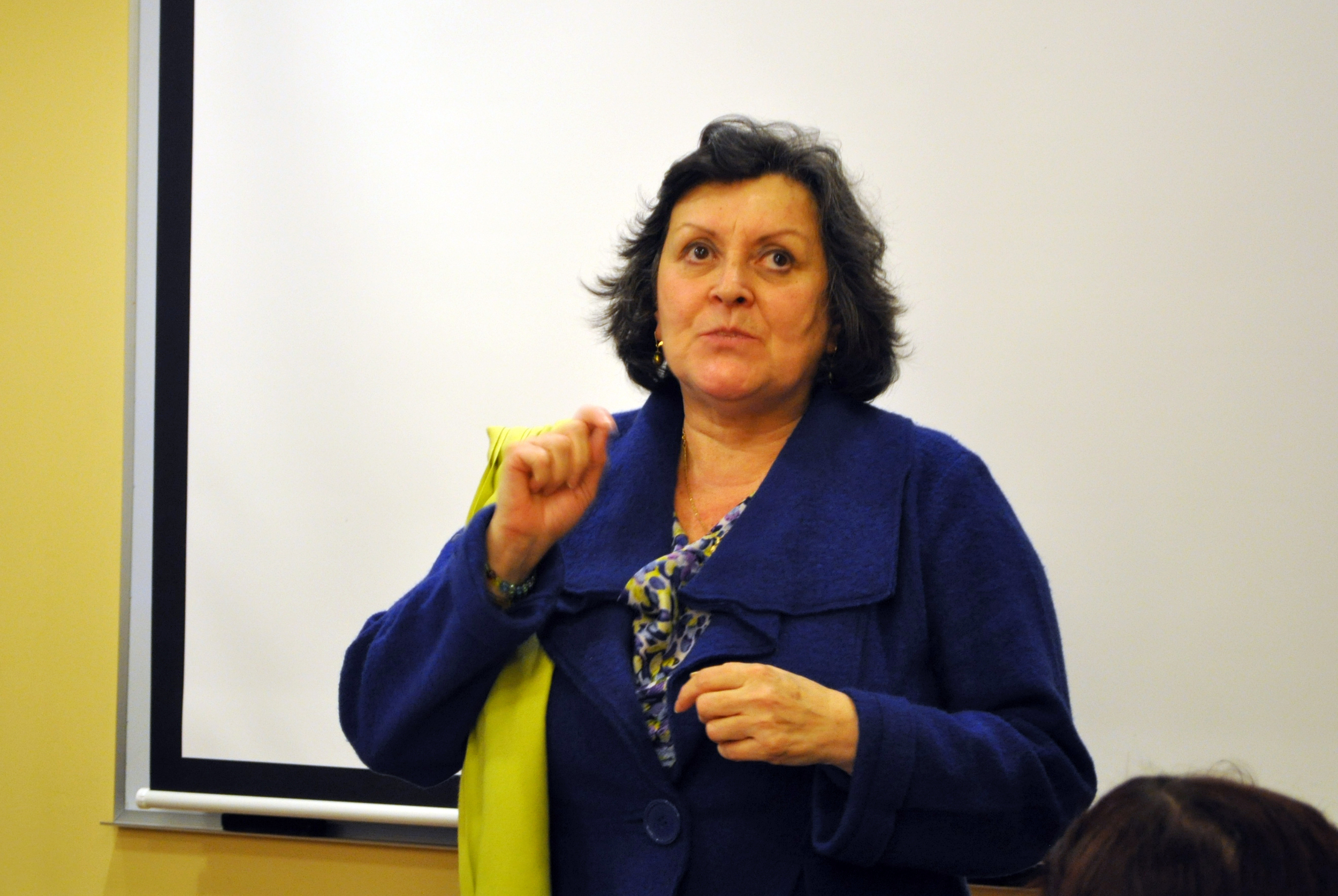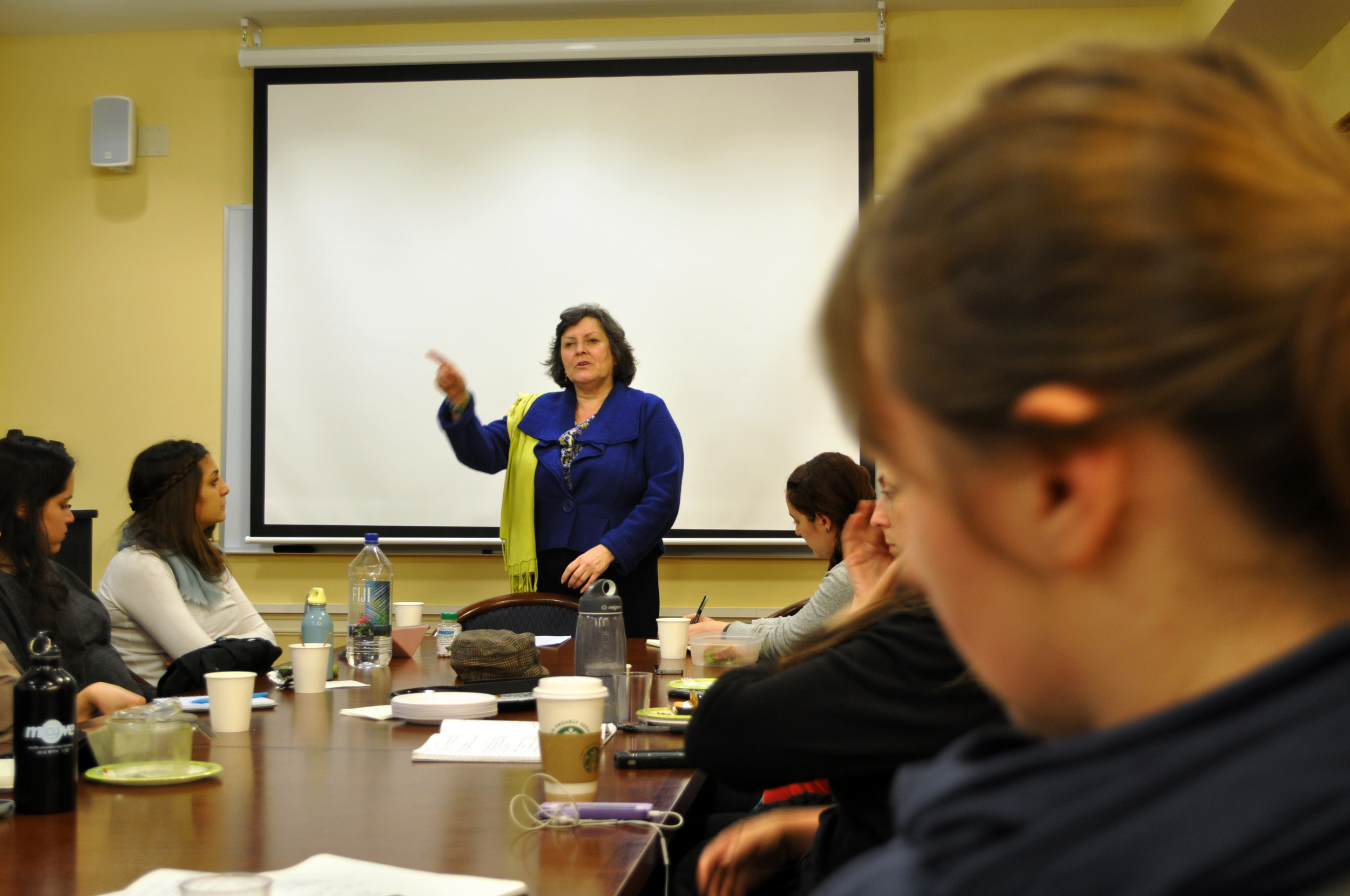On March 14, Lillian Jimenez spoke at the Columbia University during a workshop about the creation of her film “Antonia Pantoja: ¡Presente!,” the power of oral history, and her activist work in the community.
Before the public event, Oral History Master of Arts (OHMA) students had a discussion with Jimenez about how she used a seventeen-hour oral history conducted with Dr. Pantoja as the primary source material for the film. Jimenez said, “The film was built around the oral history. I finally figured out what the narrative was, what’s the story I wanted to tell, and that I took that from the oral histories in order to tell that story, and then outside of oral histories I interviewed a lot of her cohorts in order to fill out, give texture to the story of her life and work.”
The star of Jimenez's documentary, Dr. Pantoja, was an educator, social worker, feminist, civil rights leader and founder of ASPIRA. She arrived in New York City in 1944 from Puerto Rico. Working long hours as a welder in a lamp factory, Dr. Pantoja learned of the harsh racism and discrimination against Puerto Ricans and the lack of knowledge to overcome these challenges in the United States. Her most notable contribution included the creation of ASPIRA, a Puerto Rican/Latino leadership organization that has helped guide thousands of young Americans into post-secondary schools and professional lives. The documentary, guided by Dr. Pantoja's life history, sheds light on the positive contributions of the Puerto Rican community to New York and their work to shape the country's bilingual education system.
Lillian Jiménez has worked as a media activist, independent producer, and educator for the last three decades. Her interest in media literacy led her to conduct workshops on Latino stereotypes, self-representation, and positive self-imaging as a way to counter the images and messages of the mainstream press. Jimenez explains, “Much of our history is a hidden history but the stereotypes prevail to the extent [that] people still cite mainstream media as a way to define and determine who we are, historically.”
Furthermore, Jimenez explained how her film served as a platform for open discussion and amplified the voices of silenced groups in the community. “So, when I first started showing the film a lot of people from the older generation who had never been asked, 'What was it like growing up in a time of rabid racism against Puerto Ricans in New York?' They had never been asked. People would get up in screenings and start like yelling and I was like they’re venting, they’ve never been asked and here’s an opportunity for them to say what happened to them.”
A great supporter of Oral History methods, Lillian told the workshop attendees, “Go to your mothers, go to your grandmothers. Nobody has ever asked them. You have people that nobody ever asks and then you finally ask. 'Oh my God,' you know. I said before, that when people do oral histories, they change before your eyes. They become young again. They become those people they used to be and it’s a pleasure to watch them. It’s a pleasure.”
This post was written by OHMA students Sara Sinclair and Sewon Chung.



